Truck trailer tyres, also known as trailer tyres, play an important role in the safety and profitability of heavy-duty transport operations. Indeed, these tyres are subjected to stresses related to heavy loads, long distances, and variable driving conditions.
Trailer tyres must be strong to withstand lateral and braking forces. Additionally, they must support variable loads depending on the trailer's cargo.
These tyres are designed to offer a long lifespan and low rolling resistance.
Trailer tyres are often reinforced with steel to make them more resistant to damage and punctures. Their high load index allows them to carry loads of up to several tonnes.
How to choose the right truck trailer tyres?
Suitable tyres positively influence fuel consumption, durability, and overall vehicle performance. Therefore, making an informed choice will ensure their proper use.
Technical factors to consider before buying
To select the most appropriate tyres for your heavy-duty vehicles, several technical criteria must be considered:
-
Tyre dimensions: The size of the tyres is determined by a series of numbers and letters inscribed on the tyre sidewall, in accordance with ECE-R54 regulations.
For example, a dimension of 315/80 R22.5 156/150 L means:
- 315: Tyre width in millimetres.
- 80: Ratio in percentage between the sidewall height and the tyre width.
- R: Radial tyre structure.
- 22.5: Tyre diameter in inches.
- 156/150: Maximum load index for single/dual mounting.
- L: Maximum authorised speed index.
-
Type of use: The type of use of the truck greatly influences the choice of tyres:
- Long distance: Tyres with low rolling resistance, offering a long lifespan and optimal comfort.
- Mixed use: Tyres resistant to various surfaces such as asphalt, dirt, and gravel.
- Specific profiles:
- Regional: For short and medium distances.
- Urban: Suitable for urban and suburban travel.
-
Tyre categories: Tyres are divided into three categories according to their performance and cost:
- Premium: High-quality tyres with brands such as Michelin and Bridgestone, offering longevity and safety.
- Quality: Good value for money with brands like Firestone.
- Budget: More economical with brands like Tegrys, although less durable.
Top dimension
Our tips for making the right choice based on your needs
To choose the tyres that suit your needs, it is useful to consider the following elements:
-
Analysis of regular routes: Assess whether your trucks mainly drive on motorways, regional roads, or in urban areas. Each type of route requires tyres suited to these conditions.
-
Load and speed assessment: Ensure that the load and speed indices of the tyres comply with your vehicles' specifications to prevent premature wear and accident risks.
-
Weather conditions: If your trucks operate in winter conditions, equip them with winter or all-season tyres.
- Budget and brand preferences: The choice between premium, quality, and budget tyres depends on your priorities in terms of durability, performance, and price.
Analyse your specific needs to choose the right heavy-duty tyres. Consider these criteria to ensure your safety, improve performance, and achieve long-term savings.
Our Best Tyres
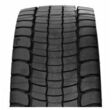
Learn more
Learn more
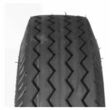
Learn more
Learn more

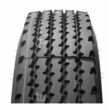
Learn more
Learn more
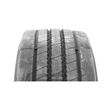
The modern new tread pattern and the composition of the tread significantly improve...
Learn more
The modern new tread pattern and the composition of the tread significantly improve...
Learn more
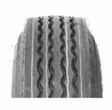
Learn more
Learn more
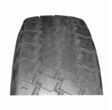
The Semperit Trailer-Steel M 277 tyre model is specially designed for trailer axles. It stands out for its versatility, being ideal for...
Learn more
The Semperit Trailer-Steel M 277 tyre model is specially designed for trailer axles. It stands out for its versatility, being ideal for...
Learn more
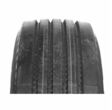
The directional quality is exceptional, thanks to the modern tread p...
Learn more
The directional quality is exceptional, thanks to the modern tread p...
Learn more
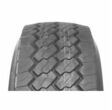
Learn more
Learn more
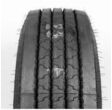
Learn more
Learn more
Tyre Maintenance, Replacement, and Regulations
Poorly maintained tyres can cause several problems. These problems include premature wear, excessive fuel consumption, poor handling, and increased risk of accidents. Regular checks can help detect and correct issues before they become critical.
Our Tips for Prolonging Tyre Life
- Adhere to recommended load and speed limits
- Perform regular tyre rotations for even wear
- Avoid sudden braking and sharp turns at high speed
- Regularly check and correct vehicle alignment
- Clean tyres after use on muddy or rough terrain
- Store tyres away from sunlight and weather when not in use
By following these maintenance and replacement tips, you can maximise the lifespan of your truck and trailer tyres, reduce operating costs, and ensure safe driving.
Tyre Safety and Maintenance
To ensure the longevity and optimal performance of tyres, regular maintenance is essential:
- Tyre Pressure: Tyre pressure should be checked at least once a month and adjusted according to the manufacturer's recommendations. Under-inflated or over-inflated tyres will wear out faster, have poorer grip, and consume more fuel. It is also important to regularly inspect the tread for any signs of irregular wear or damage.
- Wheel Alignment: Poor wheel alignment can cause uneven tyre wear. Ensure that the wheels are properly aligned.
- Regular Inspection: Look for signs of wear, damage, or deformation. Immediately replace any tyre showing anomalies.
Specific Regulations and Standards
In addition to the ECE-R54 regulation, ensure that the tyres comply with local standards in the countries where the trucks operate.
European Regulation
The ECE-R54 regulation is a key European standard that specifies technical requirements for commercial vehicle tyres, including truck trailers. Here are the key points of the standard:
-
Marking: Tyres must display specific information on their sidewalls, including size, load capacity, speed rating, structure, and the ECE symbol indicating compliance.
-
Performance Tests: Tyres must undergo rigorous load and speed tests to ensure they can withstand the intended conditions of use without failure.
- Approval: Tyres must be approved by a certification body before they can be sold and used in the European Union.
Local Regulations
In addition to the ECE-R54 regulation, each country in the European Union may have additional specific requirements for truck and trailer tyres, such as winter regulations, tread depth, etc.
When Should Tyres Be Replaced?
Tyres should be replaced when the tread depth reaches the legal minimum of 1.6 mm for truck and trailer tyres. However, it is recommended to replace them before reaching this limit for safety reasons.
Damaged, punctured, or visibly defective tyres should also be replaced immediately. However, not all tyres need to be discarded and replaced, as some can be retreaded.
What is Truck Tyre Retreading?
Retreading is a technique that involves replacing the worn tread of a tyre with a new one, giving it a second life or more after inspecting the casing. Retreading significantly reduces CO2 emissions associated with the production of new tyres.
For every 100 retreaded tyres, 50 tonnes of raw materials are saved, and 60 tonnes of CO2 are not released into the air. A retreaded tyre saves 70% of raw materials compared to a new tyre.
By reusing existing tyre casings, retreading saves natural resources (rubber, oil, etc.) needed for the production of new tyres. This minimises the volume of waste to be treated, as 60% of tyres typically end up in landfills.
Note that a tyre can be retreaded 2 to 3 times .
Truck Trailer Tyre Brands and Prices
FAQ
How to Choose Between New and Retreaded Tyres for a Truck Trailer?
A retreaded tyre costs about 40% less than an equivalent new tyre. This is a significant economic advantage for truck fleets. A tyre can usually be retreaded 2 to 3 times, which multiplies its potential lifespan by an average of 2.5. A well-maintained retreaded tyre therefore offers comparable longevity to a new tyre, at a reduced cost.
Retreaded tyres are subject to the same tests and requirements as new tyres. When tyres are retreaded by qualified professionals, they offer the same performance, safety, and durability as new tyres.
Can All Truck Tyres Be Retreaded?
Only tyres originally designed to be retreaded ("multi-life" tyres) can undergo this process. Their casings are reinforced to withstand multiple life cycles.
If the tyre was not designed to be retreaded, it must be replaced with a new tyre. Retreading must be carried out in approved workshops according to the regulations in force (UN regulations No. 108 and 109). A non-compliant tyre or one retreaded under poor conditions must be replaced.






